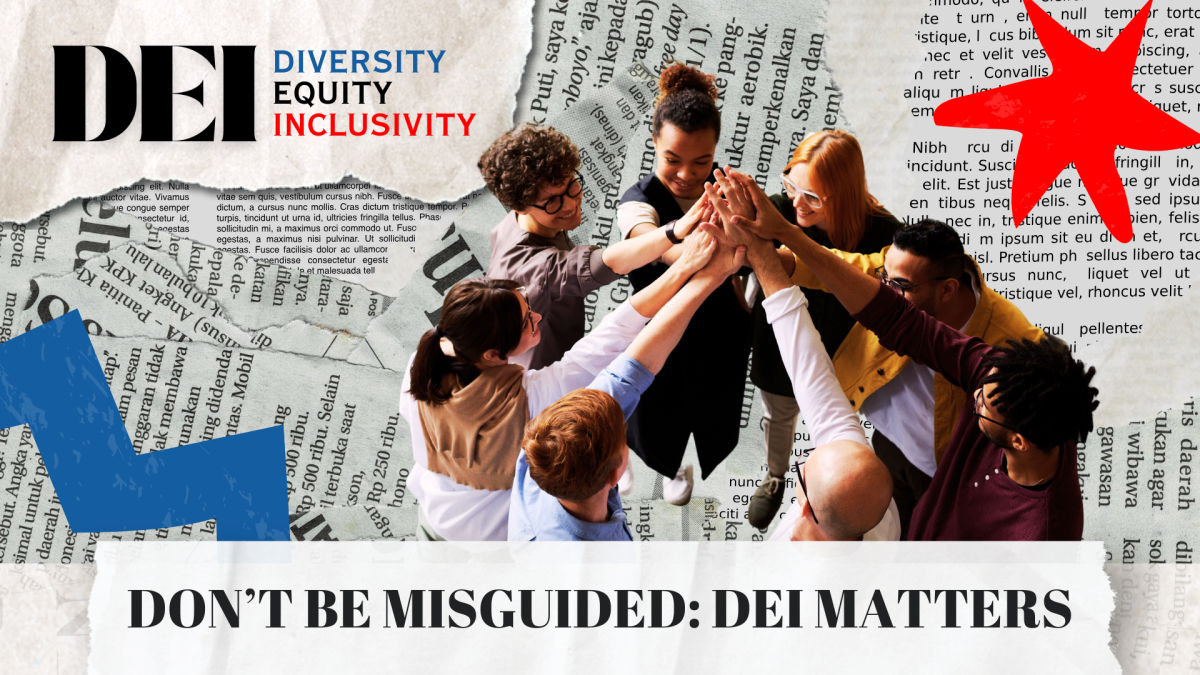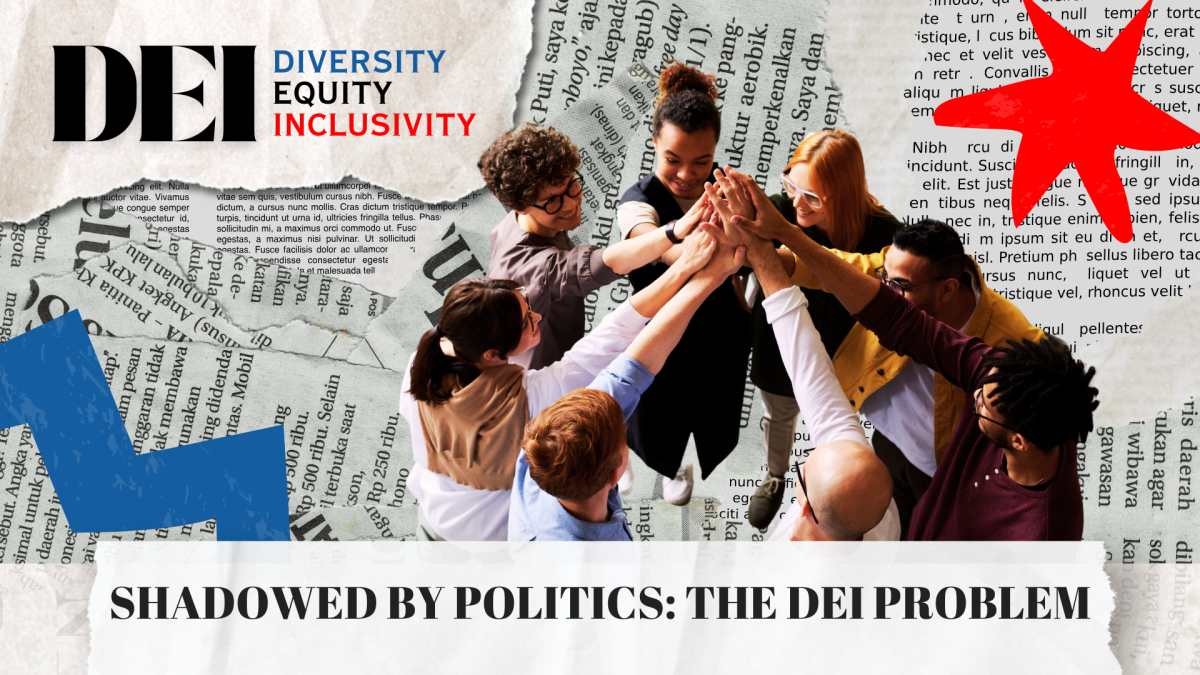“She just got in because she’s black.”
This phrase, said in many variations, detracts from the successes of individuals of minority groups, especially in the workplace and higher education. This undermining statement is also used to support the abolishment of DEI.
DEI stands for diversity, equity, and inclusivity. The opposite is a return to America’s past: uniformity, inequity, and exclusivity. In a society built on bigotry, minorities’ backgrounds need to be included in processes, as these groups have faced systemic oppression and continue to face prejudice.
As a democratic society that should value everyone, why are we restricting DEI if it is inherently good? Logically, DEI should exist.
The main argument for abolishing DEI is that it gives positions to underqualified individuals; this is far from the truth.
DEI fosters fair treatment and full participation of all people, addressing and correcting discriminatory policies and practices. While helping minorities, DEI helps the collective majority: people with varying cultures, disabilities, ages, religions, races, ethnicities, genders, sexual orientations, military statuses, and language abilities.
Uplifting historically underrepresented groups creates equality. DEI is objectively positive and works to advance society by offering an equal playing field through its initiatives.
These initiatives include implementing unbiased language in applications, emphasizing the necessity of greater diversity, removing unconscious biases while reviewing applications, reaching out to underrepresented groups, training hiring managers and recruiters, using diverse interview panels, ensuring salary transparency, and providing resources.
An extended selection to include minorities means a greater possibility for more qualified candidates. Including a more diverse population during a selection process is not an injustice, just more competition: nobody hired under DEI is getting a position without qualifications.
The act that even allowed for DEI’s creation, the 1964 U.S. The Civil Rights Act disproves the assertion that organizations solely admit or hire people based on their minority. It’s illegal.
According to the National Archives, “[the act] prohibited discrimination in public places, provided for the integration of schools and other public facilities, and made employment discrimination illegal.”
The arguments against DEI do not make sense, but what does make sense is why people share misinformation about DEI. A specific demographic is no longer benefiting from the system. DEI makes it so that being an able-bodied, straight white man no longer gives priority, and these people feel discriminated against for experiencing equal treatment.
As the system no longer provides an additional advantage to these people, they will push back. While arguing DEI is “reverse discrimination,” the hypocrisy lies in these people directly benefiting from legacy hires and admissions, which clearly perpetuates elitism and unfairness.
The current government administration mirrors this movement by using federal money to coerce organizations to comply, either cutting federal funding or threatening tax-exempt status.
The abolishment of DEI affects everyone. DEI exists because it is important to acknowledge that not everyone has equal access to opportunities, people face adversity, and merit is subjective in a prejudiced world. If we want a society that promotes a place for all, let the DEI stand.








